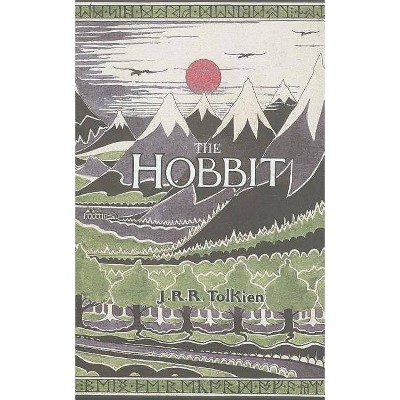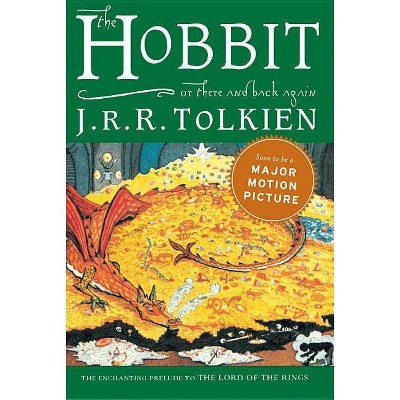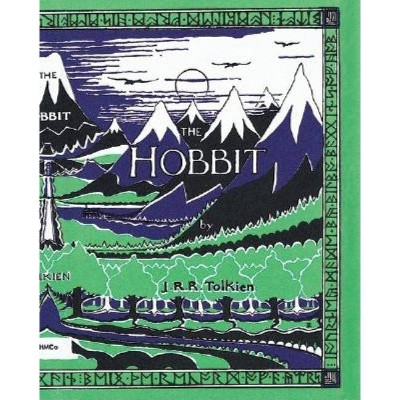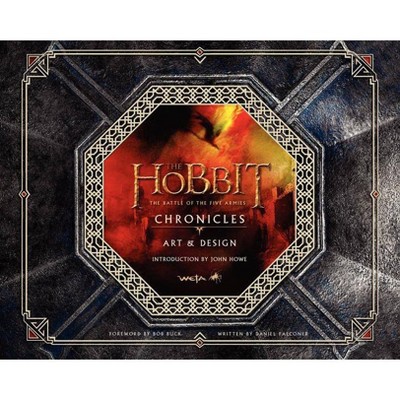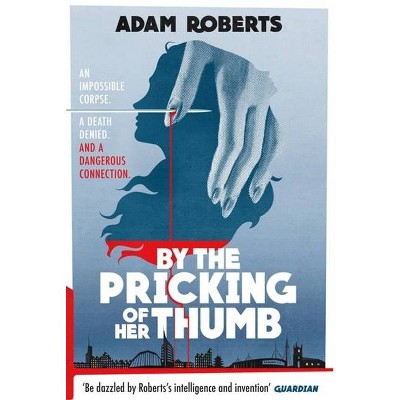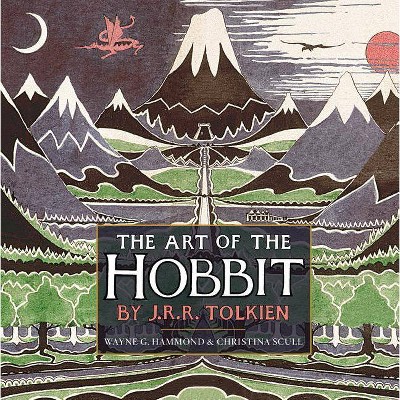The Riddles of the Hobbit - by Adam Roberts (Hardcover)
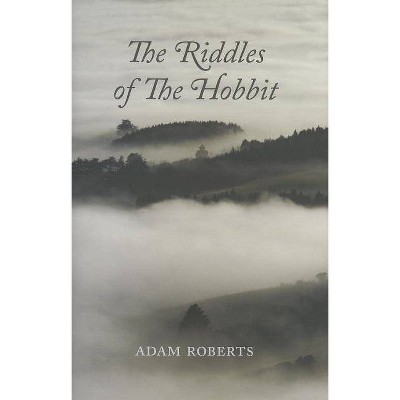
Similar Products
Products of same category from the store
AllProduct info
<p/><br></br><p><b> Book Synopsis </b></p></br></br>Riddles have lost none of their power over us: we are as fascinated by mysteries, from sudoko to whodunnits, from jokes to philosophical conundrums. The Hobbit is a book threaded through with riddles; most obviously in its central 'Riddles in the Dark' chapter, but everywhere else too-what does 'Good Morning' mean? What is a burrahobbit? How many versions of the Hobbit are there? What is the buried secret in the nine riddles Bilbo and Gollum swap between one another? What are Ents? Dragons? Wizards? What is the magic of the magic ring? <p/>All these questions, and more, are answered in The Riddles of The Hobbit, the first critical engagement with Tolkien's great novel to take 'the riddle' seriously as a key structuring principle of the novel. Riddles are more than a diverting pastime; they are expressive and beguiling rebuses that touch on larger mysteries, powerful questions and paradoxes also embodied in the Catholicism that informed so much of Tolkien's imaginative life. Ringing widely across Tolkien's creative life, The Riddles of The Hobbit explores the importance of riddles to the Anglo Saxon and Norse cultures that inspired him, and discusses scores of riddles offering (usually) more than one answer for each. This is a critical study of the playful aspect of a great writer that takes his playfulness seriously; it explores and embodies ingenuity; and comes to some original and-on occasion-startling new conclusions.<br><p/><br></br><p><b> Review Quotes </b></p></br></br><br><p><em>"A</em> riddling book about a riddling writer, a philological exercise concerning the works of a philologist. I wish there were more books like this. ... The book offers much more sober insights into Tolkien's tale-telling and language-playing habits, too, but it always wears its critical hat at a rakish angle. I loved it and felt that it did more to get me thinking tolkienially (to coin a term) than almost anything I've read about old JRRT ... ." (Professor Alan Jacobs, The New Atlantis Text Patterns, thenewatlantis.com, January, 2017)</p><p>"Roberts's The Riddles of The Hobbit displays a great deal of erudition in the knotty tradition of Anglo-Saxon riddle lore, and effectively brings to bear Old Norse and Old Icelandic riddling texts as well ... . specialists will want a copy for their shelves, and libraries will do well to make this available to advanced students." (Don Riggs, The Journal of the Fantastic in the Arts, Vol. 26 (1), 2015)</p><p>"He's known as an SF writer of no mean skill, but Adam Roberts is also a professor. Here he applies his mighty mind to a dissection of The Hobbit. Roberts is keen to emphasise the subjectivity of interpretation, stating that there are many ways to read riddles and stories. This is a strength, as the chief pleasure to be had here is seeing The Hobbit through the eyes of someone who loves it dearly. 5 stars." SFX</p> <p>"Riddles Of The Hobbit is an intriguing and fun reading of Tolkien's work. Fascinating from a historical and literary perspective, Roberts may well be an academic writer, but the text is no worse for it. Rather this is a very enjoyable journey into the puzzles that make reading 'The Hobbit' so memorable. There is plenty here to interest the most ardent Tolkien reader and casual fan alike." - SFCrowsnest</p> <p>" the book does a wonderful job of illustrating the depth and complexity of thought inherent in Tolkien's work, without ever losing sight of the deeply religious and conservative nature of that work. It is a fine example of the skill of distancing appreciation of literary craft from the nature of the literary work under examination . It is also amusing, intelligent, and rather sentimental about a well-loved literary favorite." - Cheryl Morgan</p> <p>"Adam Roberts lays out his ideas in a straightforward, uncomplicated manner, so that one has neither to be a Tolkien scholar nor an expert at solving riddles to understand and appreciate this book. His wit and humor, along with his clever use of rhetorical devices, make The Riddles of the Hobbit an enjoyable read, as well as an informative one." - The Blog of The Hobbit</p> <p>"There's much of interest in this book for the Tolkien enthusiast. Even aspects of Tolkien's work that might be familiar to most are presented and examined in a refreshing way." - mytolkienbooks.com</p> <p>"If you're a more advanced literary or linguistic scholar or armchair philosopher and are looking for some interesting ideas to discuss around the gaming table, this book will spark much dynamic conversation." - Legendarium. Middle Earth Network</p> <p>"Roberts applies great imaginative ingenuity to the reading of riddles. His book complements existing work on Tolkien by adopting a free interpretative approach which is justified, not by some abstract postmodern theory, but by a bold claim about the riddling, ironic, polysemous nature of Tolkien's texts." - Brian Rosebury, author of Tolkien: a Cultural Phenomenon</p> <p>"Even the seasoned Tolkien fan can still learn new things from this excellent book . . . In this enlightening exploration Roberts uncovers the nature of Tolkien's handiwork and illustrates how the act of reading is in fact an act of unriddling." - Tolkien Library</p> <p>"Two final words of sheer enjoyment: Adam Roberts's The Riddles of the Hobbit is a wonderful tear across open academic country, a fusion of scholarly and fannish writing which is an intellectual pleasure from first to last." - Strange Horizons 2013 round-up</p> <p>"Roberts makes a compelling argument, but what I most enjoyed about the book is that it made me think about the text in another way adding another layer to what many consider just a book for kids. 9/10." - Sci-fi-online.com</p> <p>"The Riddles of the Hobbit is a loving look at the use of riddles in The Hobbit (and, to a lesser extent, The Lord of the Rings)</p> <p>as well as a scholarly rumination on the significance of riddles in life and literature." - SciFi Bulletin</p> <p>"You are wondering, as I was, how much can be said about the riddles from The Hobbit. What I didn't understand is that the conversation between Bilbo and Gollum are not the only place where riddles are found in the book . Roberts understands, as, of course, Tolkien did, that the Anglo-Saxon world loved riddles, and saw life (and death) as a riddle." - HollywoodJesus.com</p> <p>"I was worried that the author would have failed to take account of what are often considered to be the foremost analyses of the Tolkien's riddles . However, this turned out to be a false worry: Roberts not only includes references to all of these, but also expands upon and, at times, questions certain aspects of their work all of which makes for a rewarding read." - Mythoi</p> <p>'Roberts does a good job of covering the background of riddle games in the Anglo-Saxon and Norse cultures...This fascinating book is for anyone interested in the background and roots of The Hobbit. Summing up: Recommended. Lower-division undergraduates through faculty; general readers' - CHOICE</p><br><p/><br></br><p><b> About the Author </b></p></br></br>Adam Roberts is Professor of Nineteenth-century Literature at Royal Holloway, University of London, UK. He is also the author of more than a dozen science fiction novels: his most recent, Jack Glass (2012) won the BSFA and Campbell awards for the year's best science fiction novel. He has published a number of critical and academic works on science fiction, 19th-century and other topics.
Price History
Price Archive shows prices from various stores, lets you see history and find the cheapest. There is no actual sale on the website. For all support, inquiry and suggestion messages communication@pricearchive.us
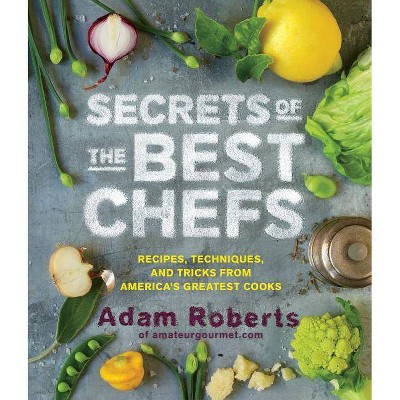
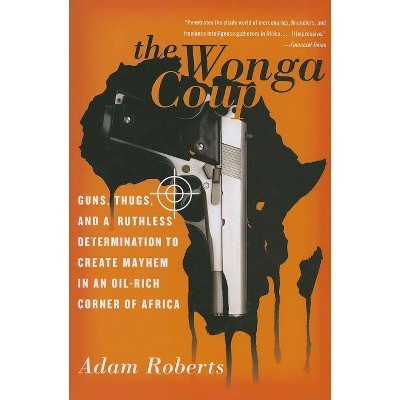
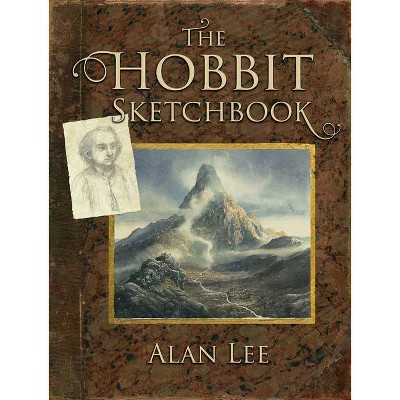
![The Hobbit Trilogy [DVD]](https://pisces.bbystatic.com/image2/BestBuy_US/images/products/3406/34068373_so.jpg)
